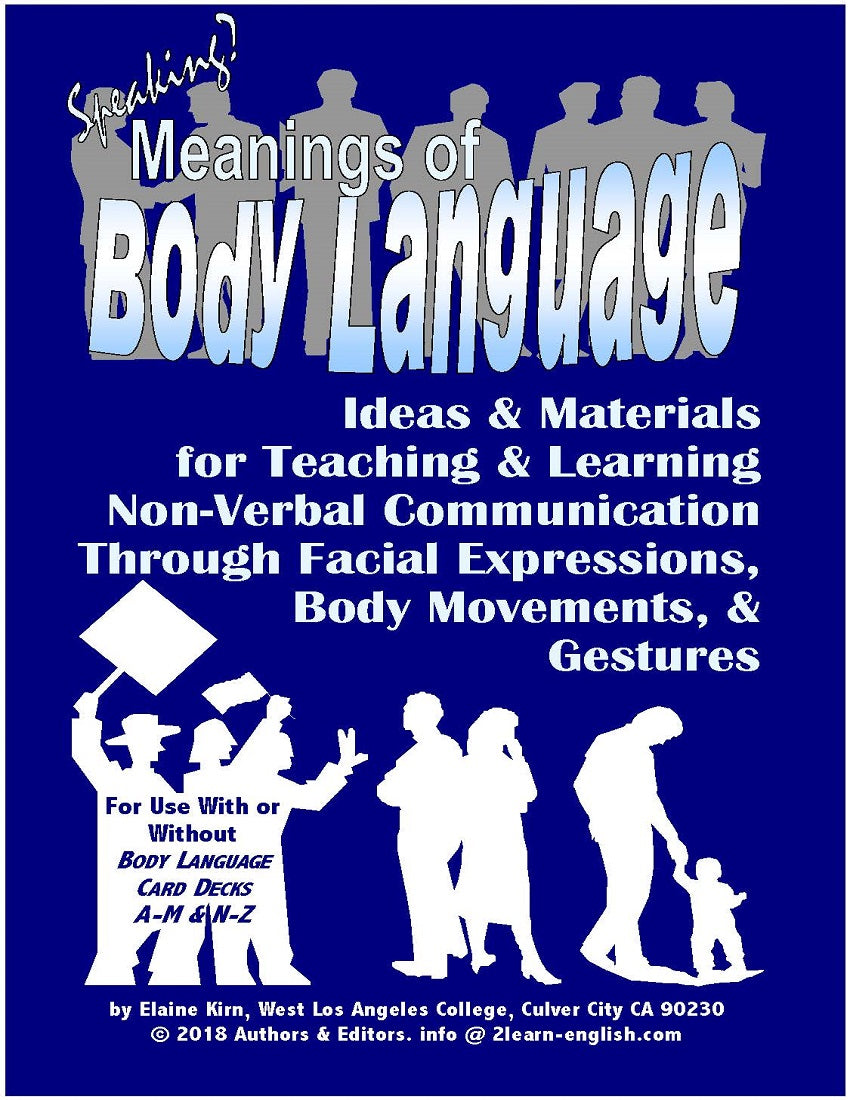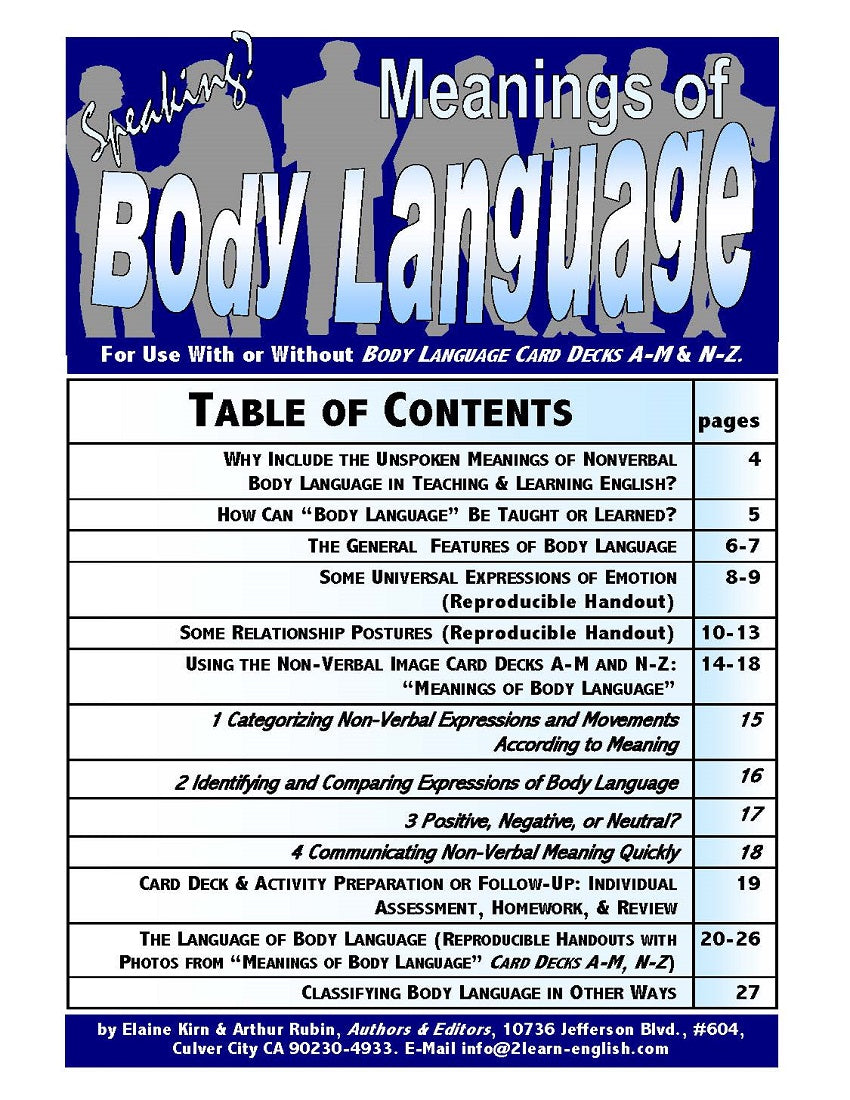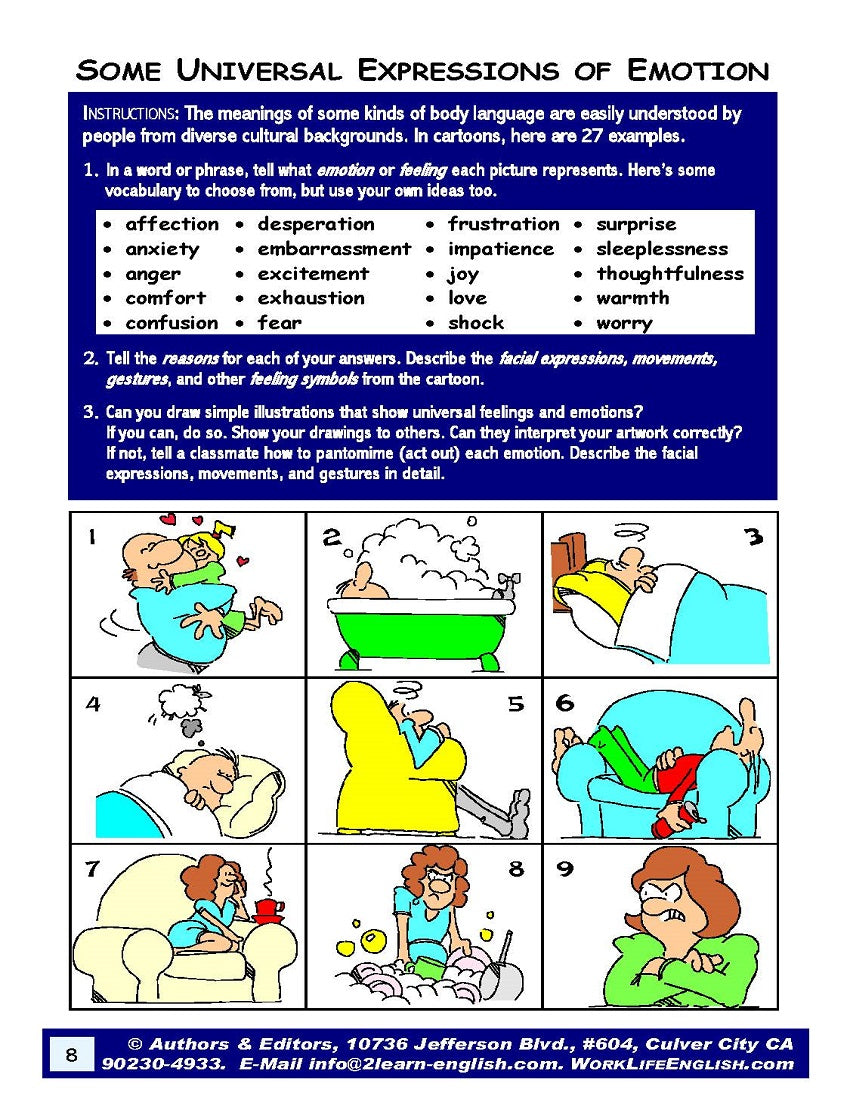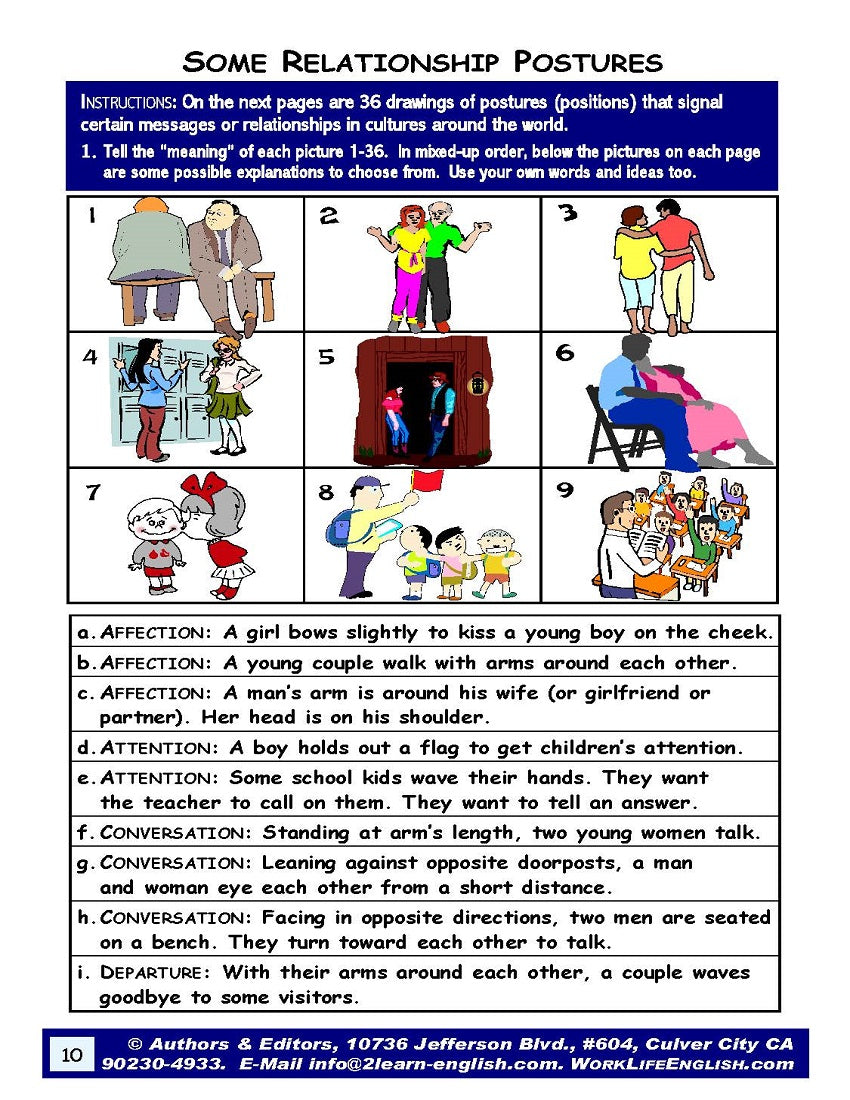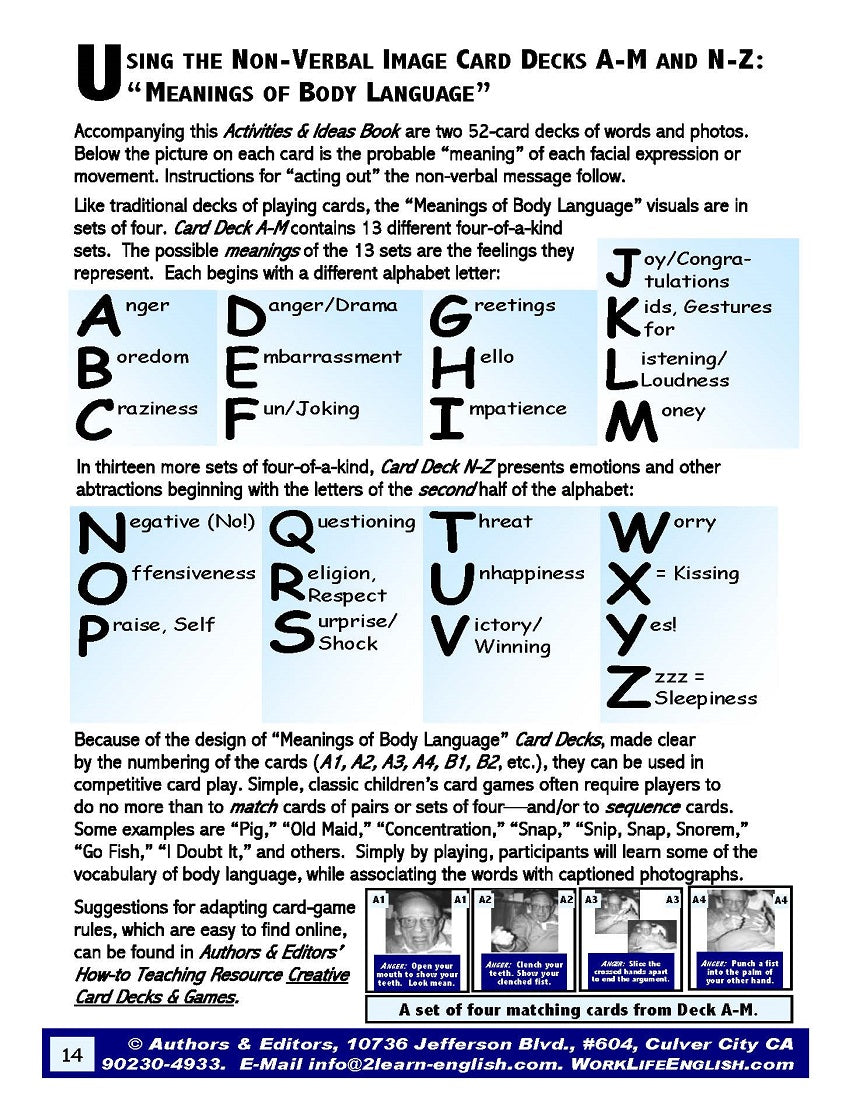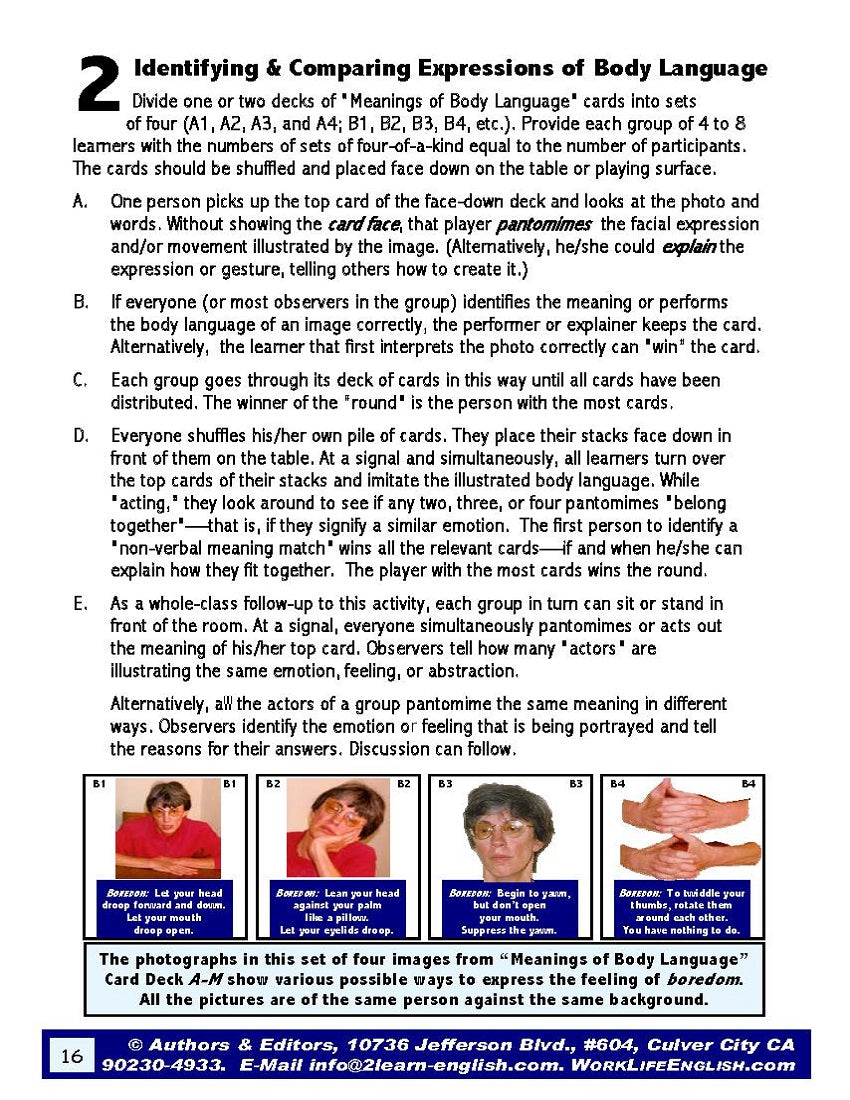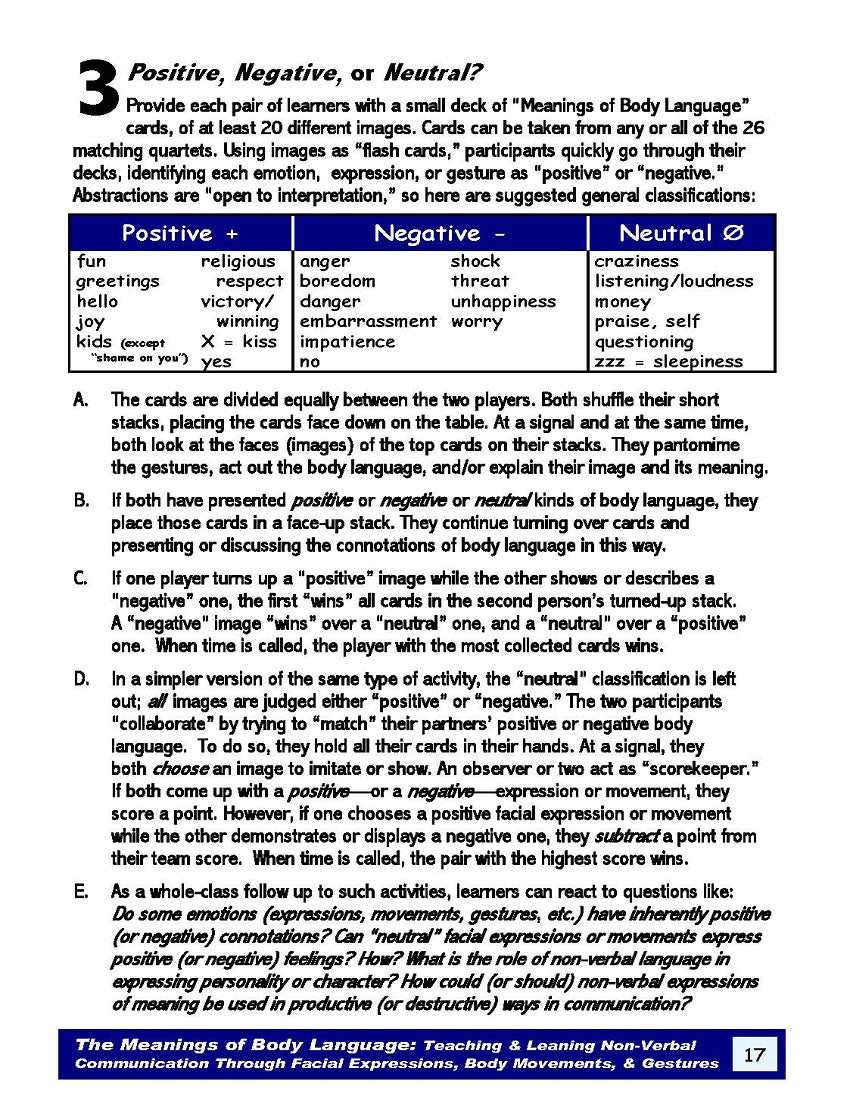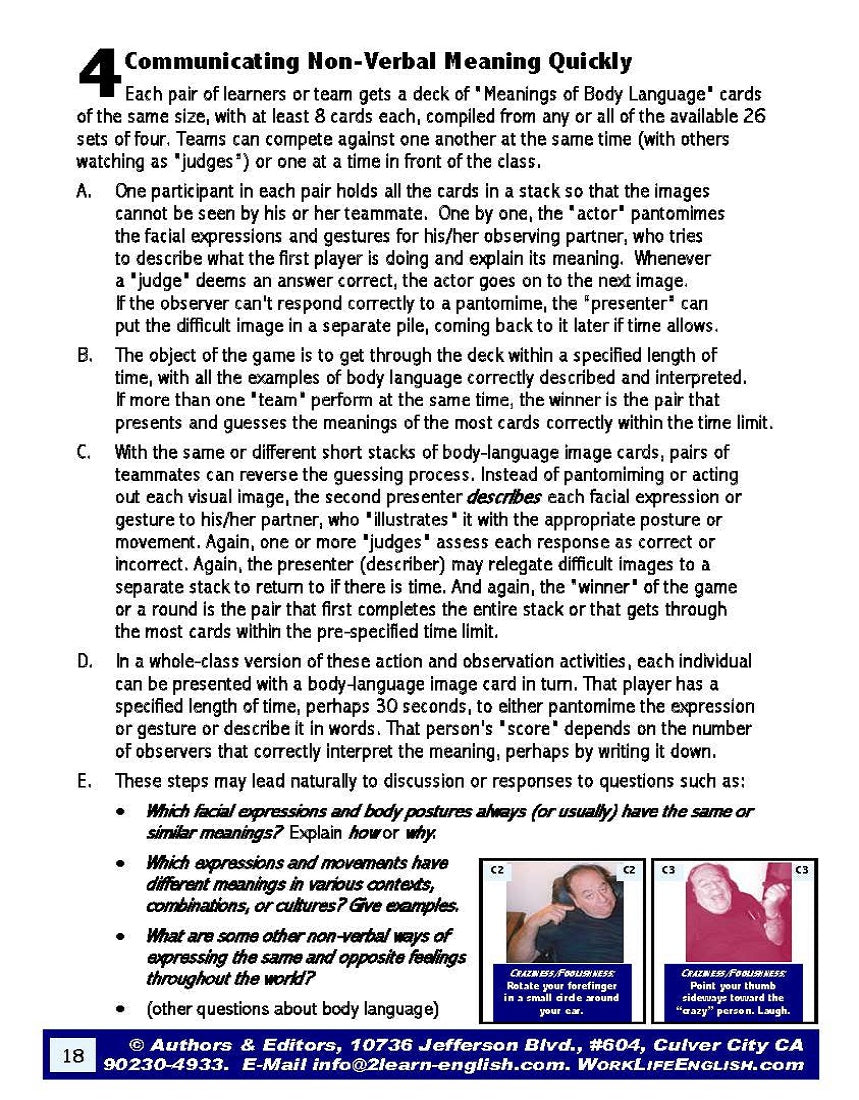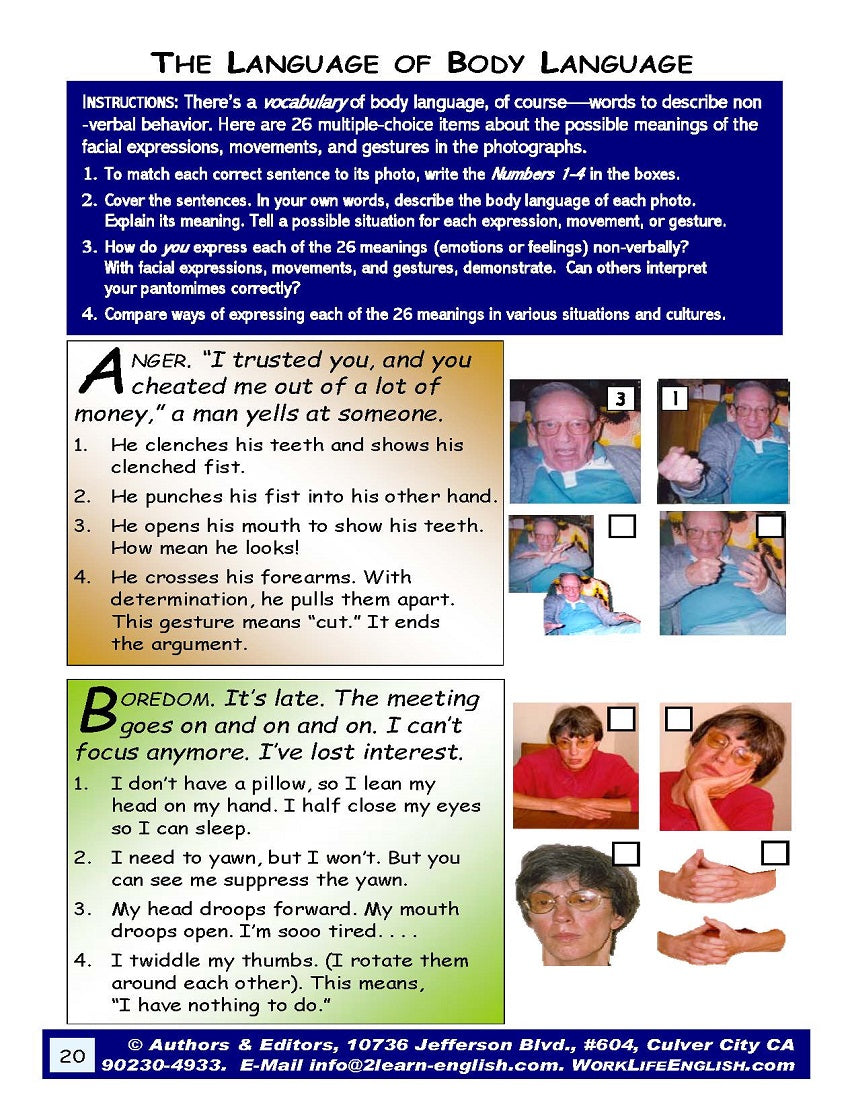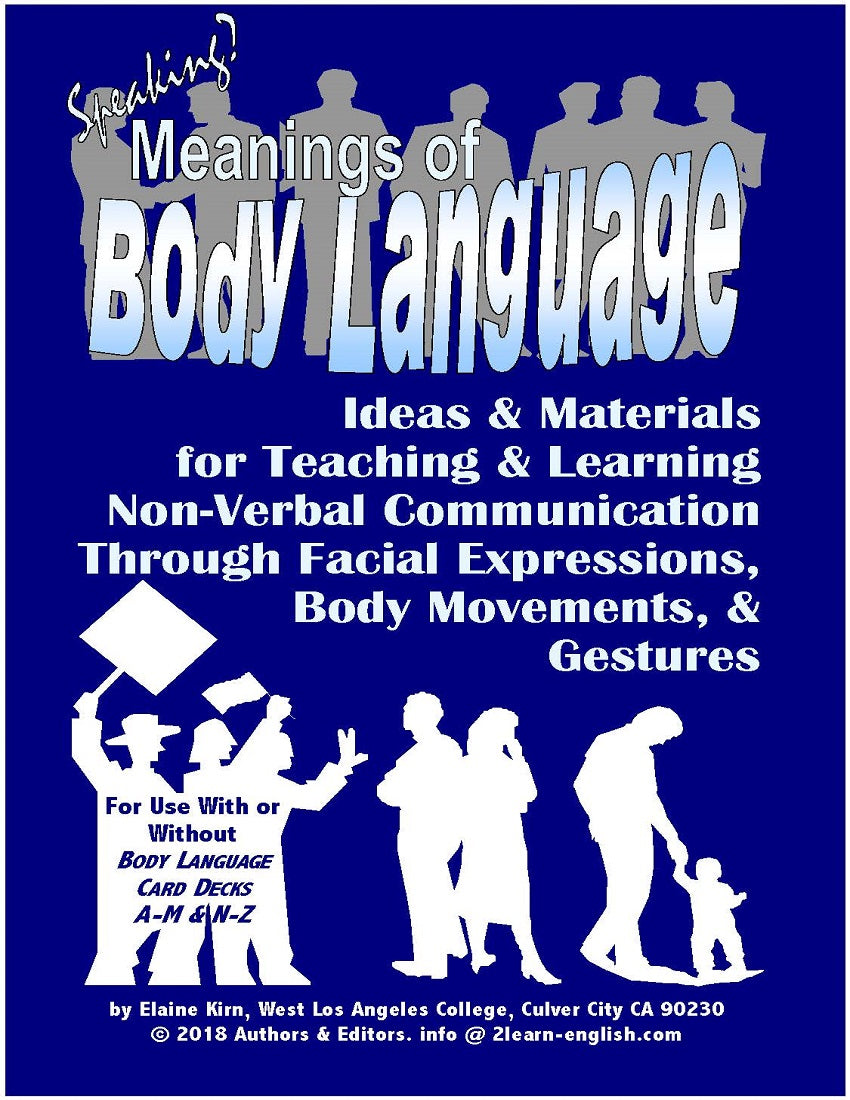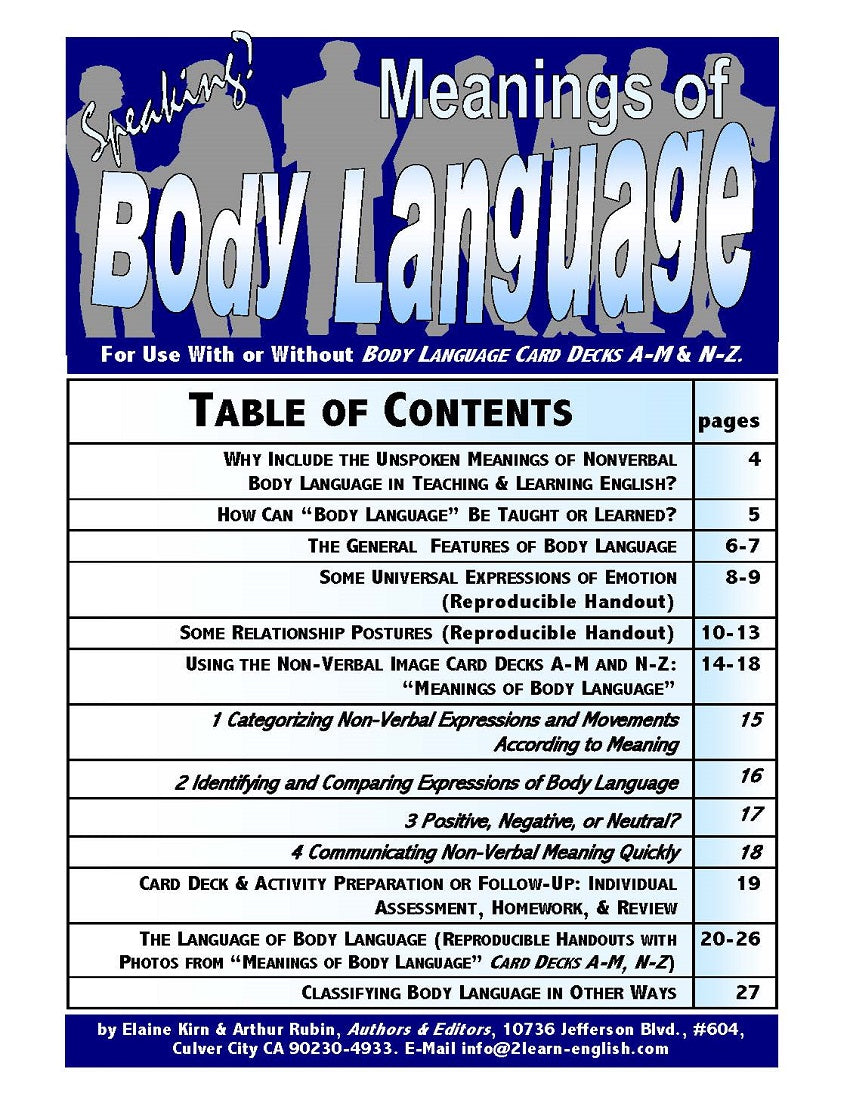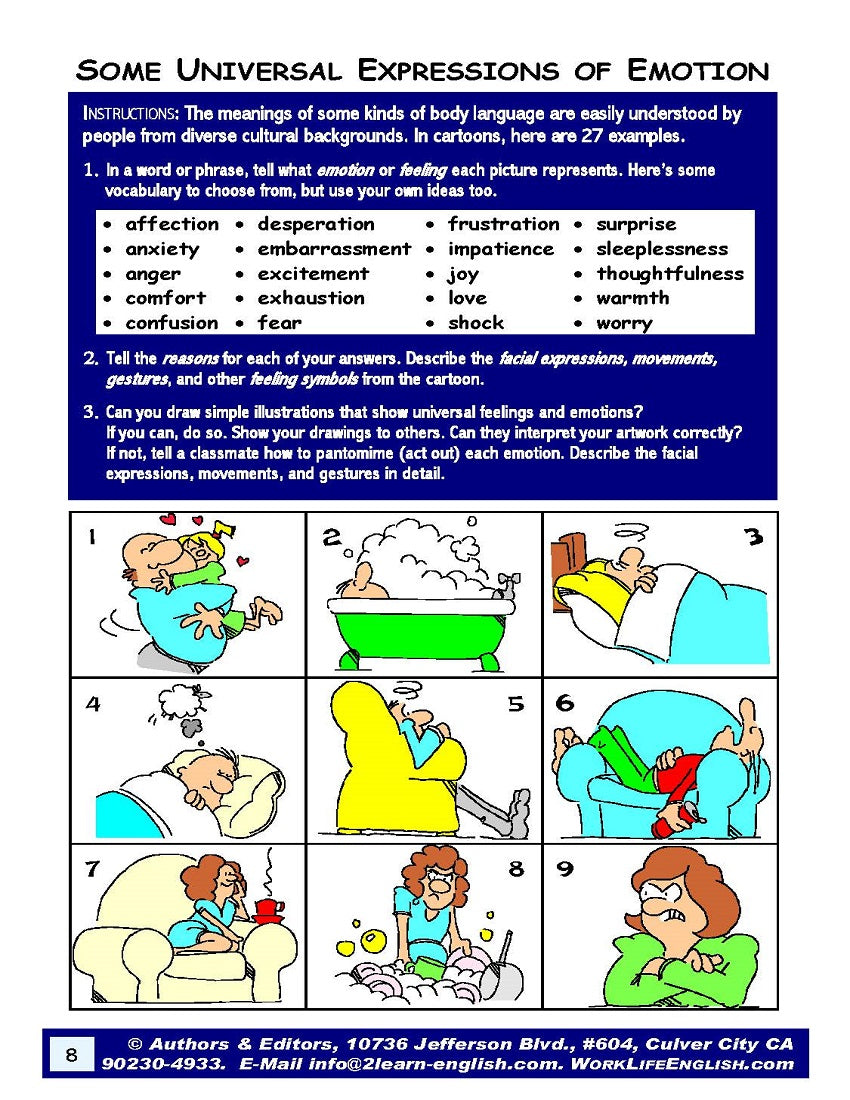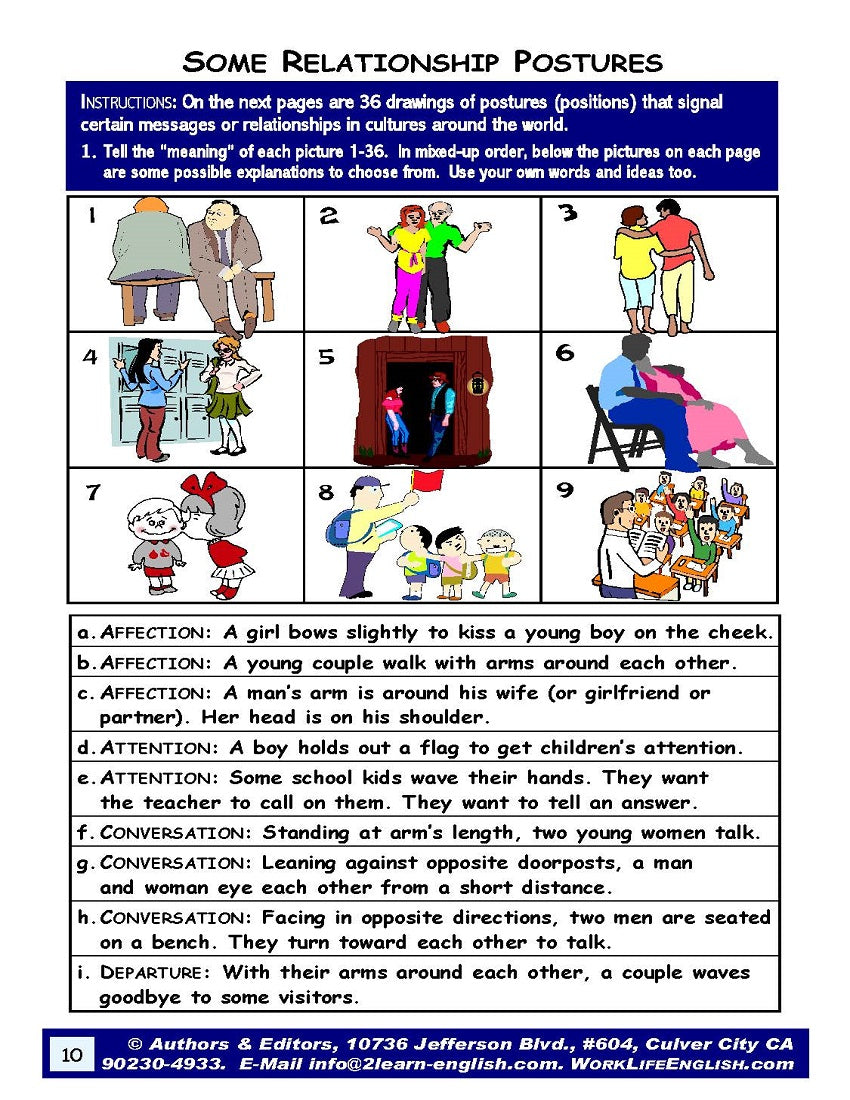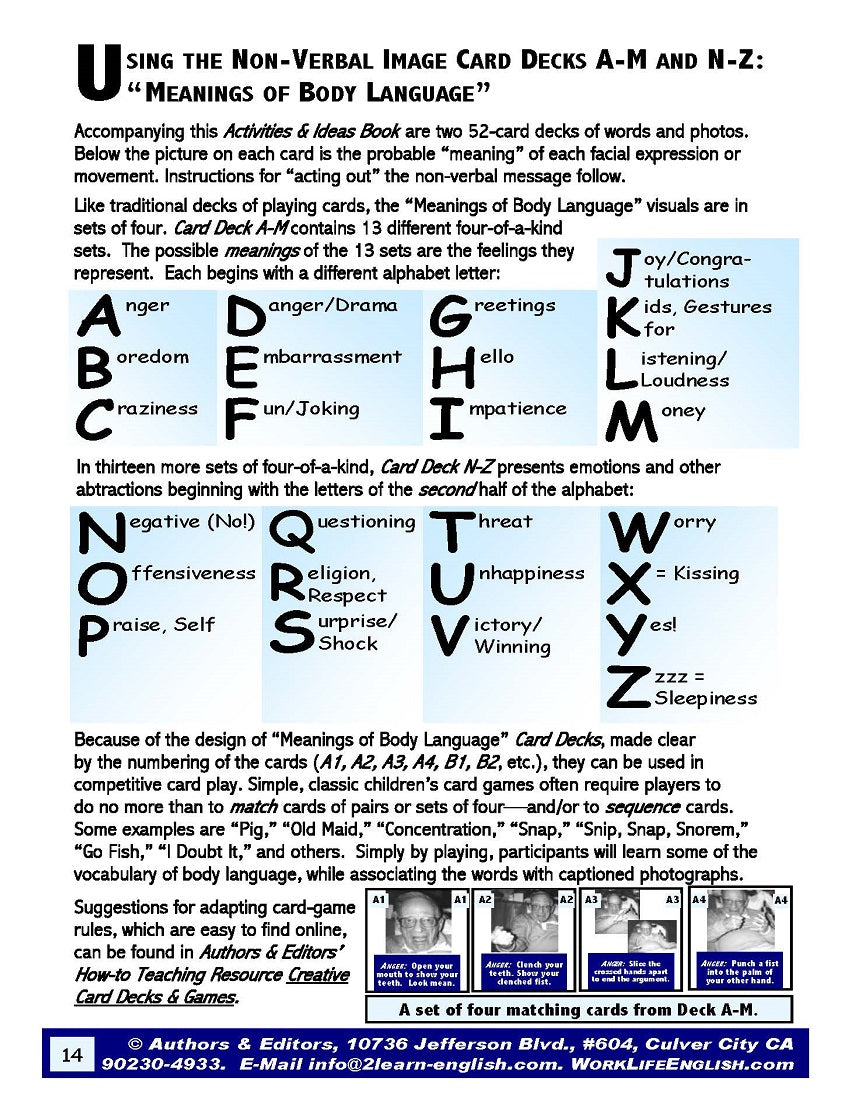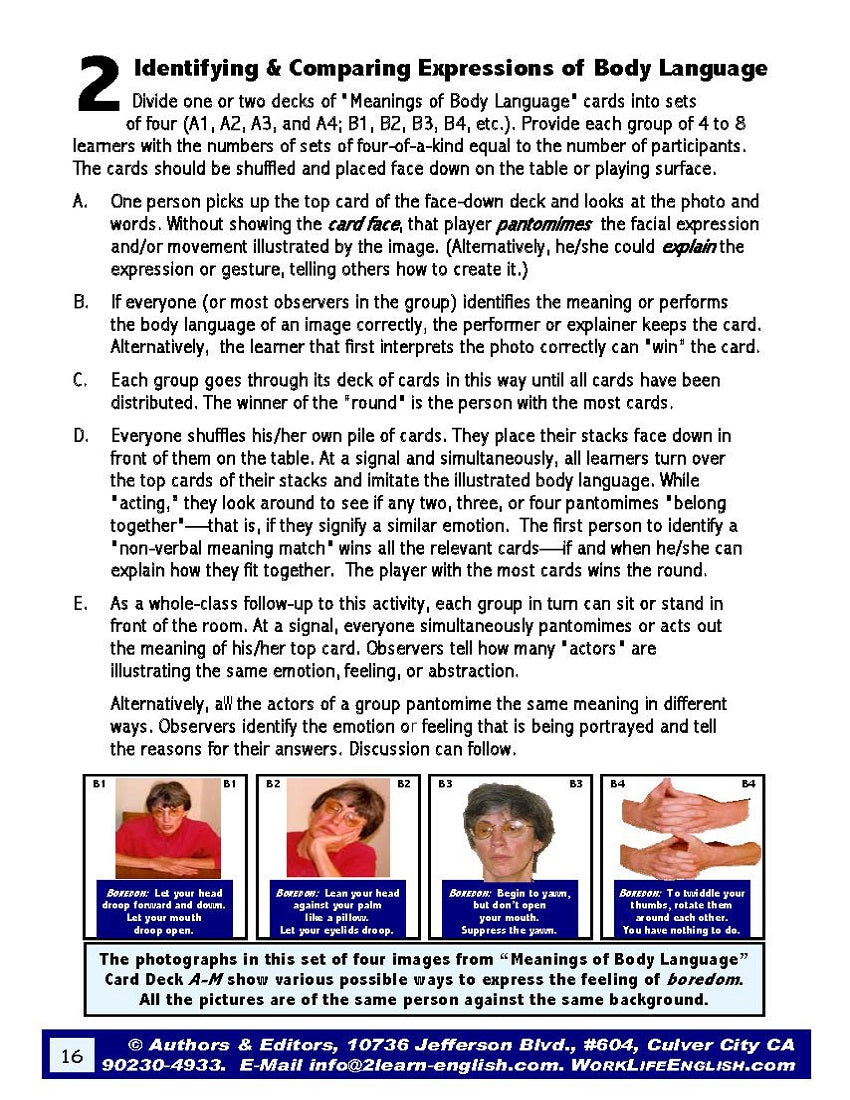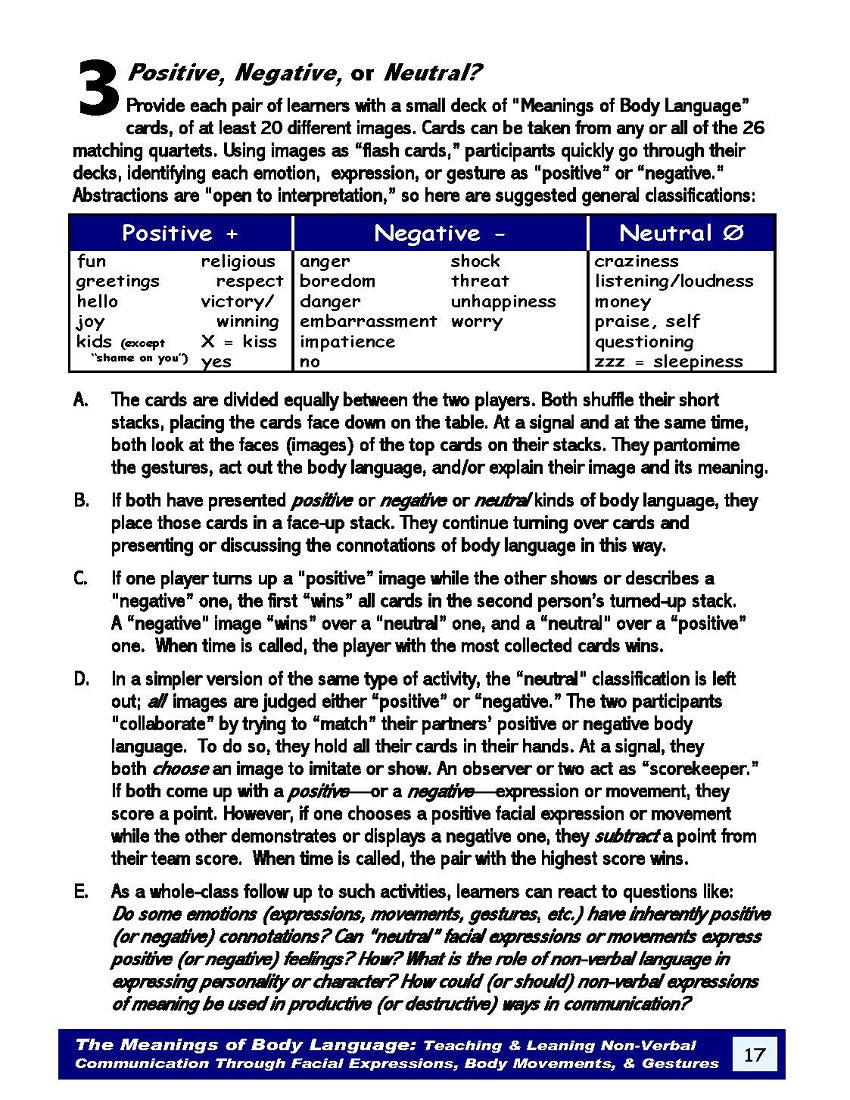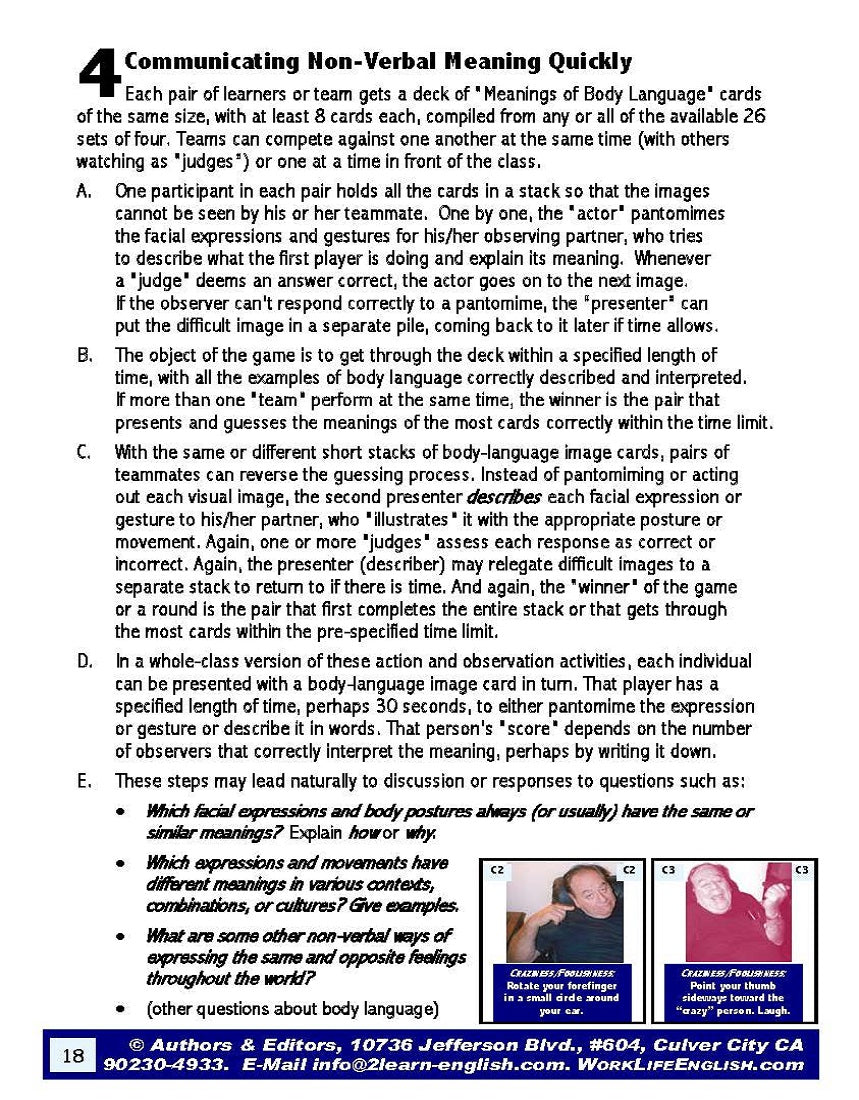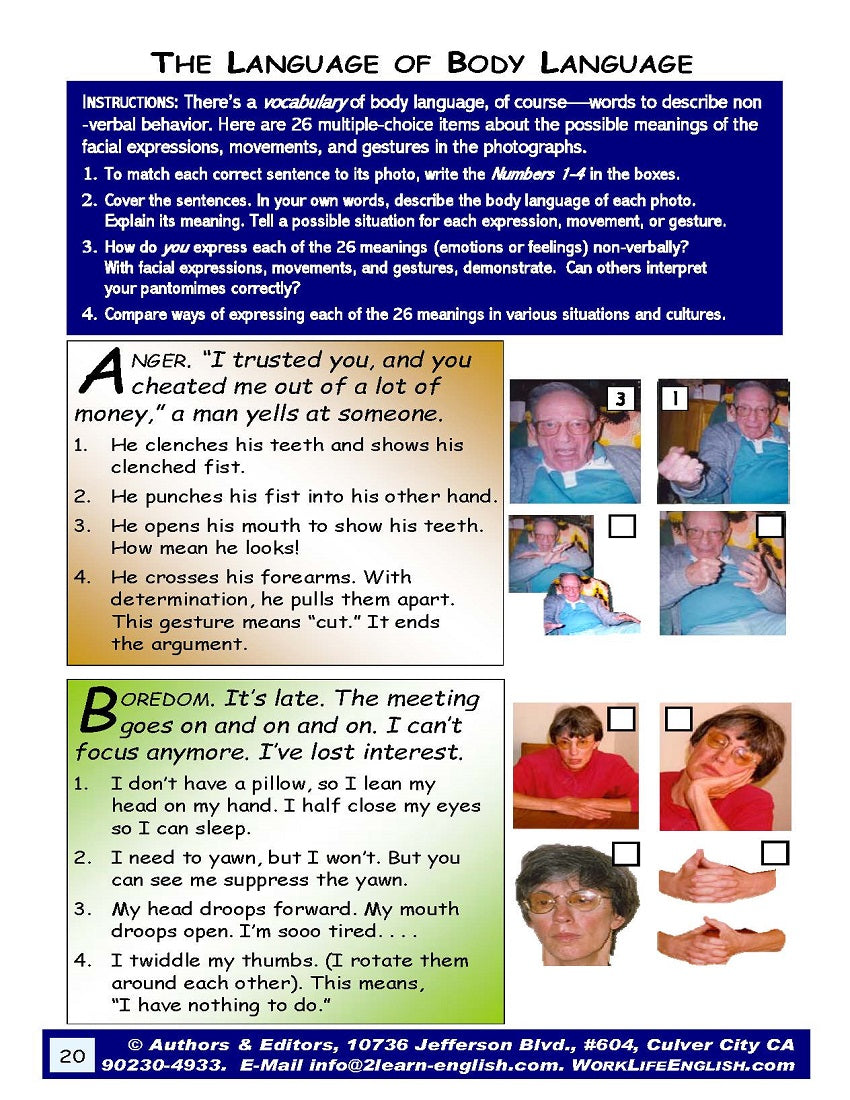1
/
of
9
Work/Life English
E-00.01a Instruction in Non-Verbal Body Language: Oral- Skills Activities & Lessons
E-00.01a Instruction in Non-Verbal Body Language: Oral- Skills Activities & Lessons
Regular price
$5.00 USD
Regular price
Sale price
$5.00 USD
Unit price
/
per
28-page How-to Book: Meanings of Body Language: Ideas & Materials for Teaching & Learning Non-Verbal Communication Through Facial Expressions, Body Movements, & Gestures
28 half-sized pages
Who It’s For: Pre- & Rank-Beginners (+ Their Teachers & Helpers) Not Yet Able to Communicate with Connected Speech; Language Learners Interested in Non-Verbal Augmentation of Verbal Messaging
Why It’s Useful: Naturally, (pre-literate) students of basic English may attend to “non-verbal” signals like movements, gestures, and facial expressions even more than the words they hear in fluent speech. Correspondingly, they might use motions & looks as much as verbalization in attempts to express meaning. And while progressing in Listening & Speaking, language teachers / learners will want to keep in mind that Facial Expressions, Body Movements, & Gestures are an integral part of Oral Communication.
What You’ll Do:
[1] In viewing the cover of Meanings of Body Language, its Table of Contents, and its first few pages, get an idea of and/or convey what “Non-Verbal Communication” entails—along with why & how it could be taught or learned. On pages 8-13, make (verbal and/or non-verbal) instructional use of drawings that symbolize “Some Universal Expressions of Emotion” + “Some Relationship Postures.”
[2] From pages 14-19, get suggestions on how to Categorize; Identify; Compare; and Interpret (as Positive, Negative, or Neutral) at least 104 Expressions of Body Language. Reduced in size and explained on pages 20-26, these photographic images comprise the content of 00-01b Body-Language Cards A-Z.
[3] Refer to the material in the 28-page E-00.01a Meanings of Body Language: Ideas & Materials for Teaching & Learning Non-Verbal Communication Through Facial Expressions, Body Movements, & Gestures whenever helpful in language-skills instruction and acquisition.
Couldn't load pickup availability
